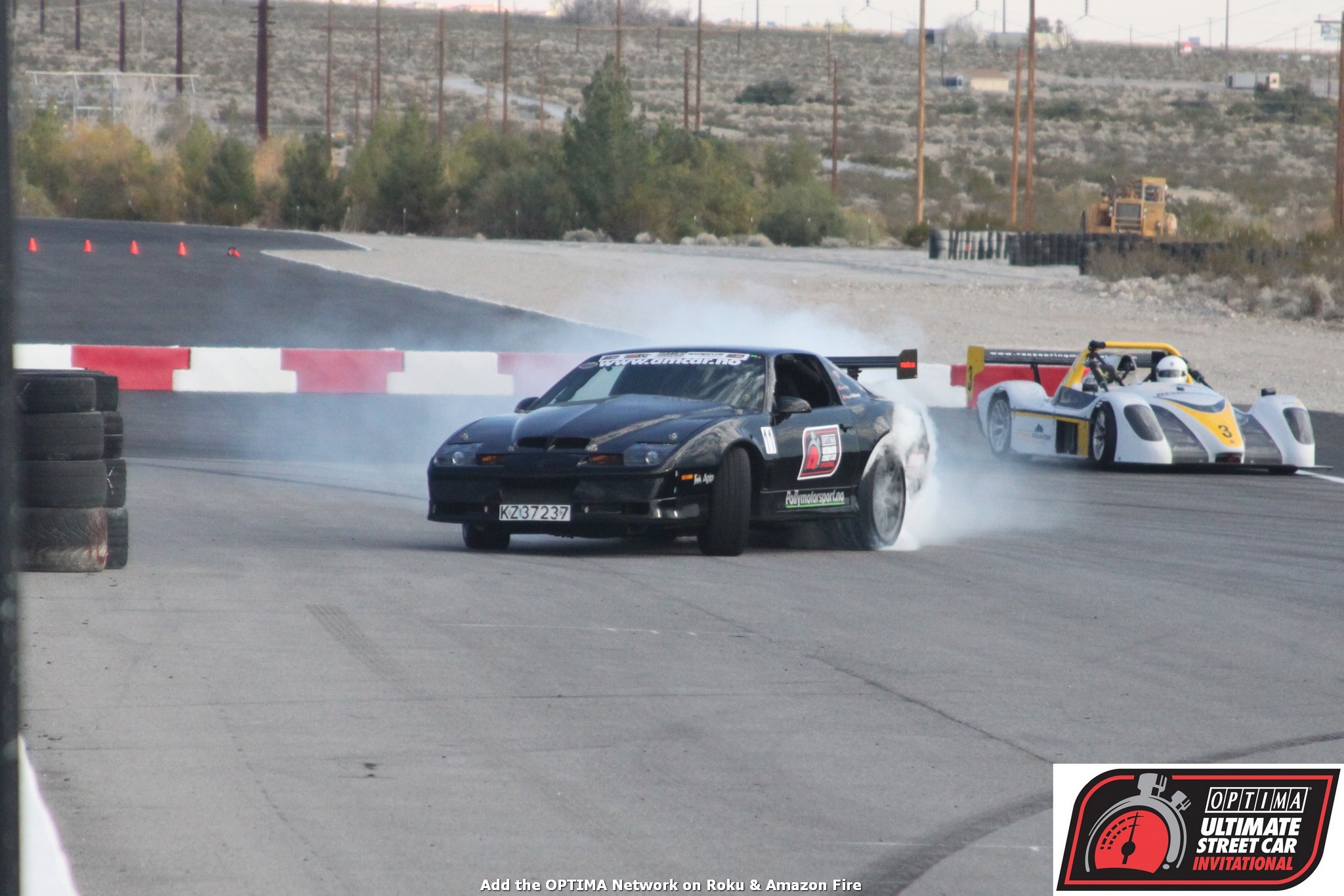What is Racing?

- Sponsor
- OPTIMA Batteries
- Location
- Milwaukee, WI


It started with a video we posted of Polly Blytt's Trans Am running at the 2010 OPTIMA Ultimate Street Car Invitational on OPTIMA's YouTube Channel. In the description for that video, we called Blytt's Trans Am, "the fastest street-legal car in Europe." This claim was based on a 252 mph run Polly made at Europe's Papenburg test track.
Several months later, a comment was posted on that video that suggested the Red Victor 1 was in fact, the fastest street-legal car in Europe. We asked for a link that suggested Red Victor 1 eclipsed Polly's top speed, but none was provided. Instead, it was suggested that "quickest" and "fastest" mean the same thing in racing. While quickest and fastest may be used interchangeably in many conversations, the racing community, especially drag racers, seem to differentiate the two, with "quickest" being measured in time, while "fastest" is measured in speed. In fact, many folks will lay claim to being both quickest and fastest in some specific sub-category, which wouldn't be necessary if both words had the same meaning in racing.
It was then suggested that "Guinness" (presumably meaning the Guinness Book of World Records) does not indicate that a land speed record is considered a form of racing and that the folks who run vehicles at Bonneville know they are not racing. As luck would have it, OPTIMA Jim actually has a couple of old copies of the Guinness Book of World Records (1983 & 1984 editions) in his possession and both of those books list top speed records in the "Auto Racing" section. Jim also volunteers at his childrens' school library and while he hasn't checked newer editions of the Guinness Book, the newer editions tend to have far more pictures and far fewer listings of records. Regardless, there might be quite a bit of debate within the racing community as to whether the folks at Guinness should or could be considered the definitive authority on what is defined as "racing."
What surprised us more was the suggestion that the Bonneville racers themselves know what they were engaging in was not considered racing. We've seen the "Real Race Cars Don't Have Starters" bumper stickers at midget races and know that some of the road racing fans don't think any competition that doesn't involve turning left and right should be considered racing, but we had never heard of a group of competitors themselves conceding that the activity they are engaging in is not actual racing. OPTIMA Jim decided to ask the Bonneville folks if this was really the case. As we suspected, the Bonneville racers most certainly do consider their form of motorsports to be real racing and many were very passionate in making that point. We understand that in the competitive world of motorsports, there is bound to be competition between different disciplines. Some folks will always consider their form of racing to be better than any other and can back up their opinion with very solid reasoning.
As simple as the question of "What is Racing?" may seem, there appears to be quite a bit of debate as to what can be considered racing. Does racing only occur when competitors run hull to hull, wheel to wheel or head to head? Do races need to have a specified distance (1/4 mile or Baja 1000) or are timed/top speed events (Bonneville Speed Weeks or 24 Hours of LeMans) also a legitimate form of racing? Can there be considerations beyond speed or time, as there is in drifting? Is it simply a win at all costs mentality that defines racing? If that is the case, does that exclude forms of vintage motorsports, where competitors would rather not risk wadding up a $3 million Ferrari for a $20 trophy?
What do you think defines an activity as racing?
